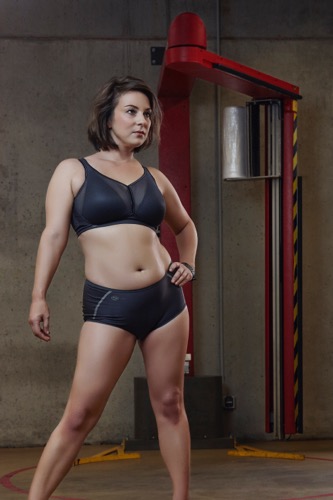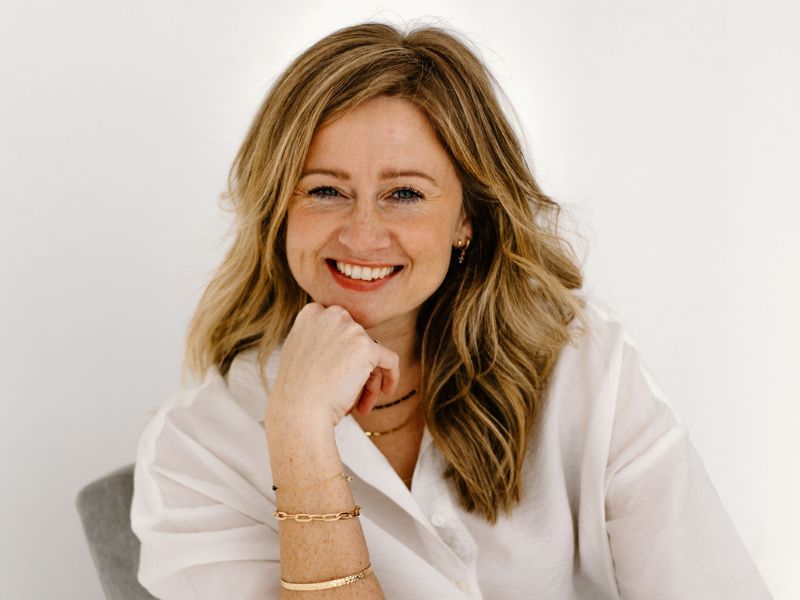October is Breast Cancer Awareness Month and to commemorate it, WeAreTheCity will be profiling a variety of different women who all carry the BRCA1 or 2 gene mutation.
These mutations give the carrier a 75 per cent chance of developing breast or ovarian cancers. It is a hereditary gene, which can be passed down through the male line, as well as the female.
Angelina Jolie famously had this surgery a couple of years ago but the National Hereditary Breast Cancer Helpline say that the message still hasn’t really filtered down to the public yet.
One in 200 people carry a fault in a high risk gene that predisposes them to an increased risk of developing breast, ovarian or prostate cancer.
The hope from these articles is to give a spotlight to these incredible women and to raise awareness of the BRCA gene mutations.
Last year, Jay Walker, 38, had a risk-reducing mastectomy.
How did you find out that you had the BRAC gene?
I don’t! Despite having a family history – my mum has been diagnosed twice with both separate cancers and in both breasts, and great aunts have died young from breast cancer – we do not carry the BRCA mutation.
BRCA is found in hormone negative cancers. Our cancers were hormone positive/receptive, but the team at St Mary’s Hospital advised us they were aware of other genes they haven’t been able to isolate or identify and that due to age and recurrence, we are likely in the as yet ‘unidentified’ group.
How have you coped with the challenges that you’ve faced since?
The wait was the hardest.
You’re told at the start of the process it takes no less than eight months. In total, I waited nearly four years and I just didn’t feel like I could make any plans.
My entire life was on hold.
My decision never wavered but I just wanted – needed – it done as soon as possible!
Every year was another year closer to being too late.
Since the operation I feel like me again, only like me with extra as the dread, fear and worry has gone. I woke up laughing (seriously)!
What support have you received? Do you have a strong support network of friends, family etc. or have you been supported by other networks?
From the start I had the backing of my entire family. However, it wouldn’t have made any difference if I had not had that support. I decided I wanted this surgery after my mum had cancer the first time – nearly 20 years ago. Other people’s opinions on the subject are irrelevant when you live every day wondering if and/or when you too will find a lump.
How did you become involved with the campaign for Breast Cancer Awareness Month?
I became involved via the Hereditary Breast Cancer Helpline. I was introduced to Becky through mutual friends when word got out about my decision.
Last year, Becky convinced me to do a skydive for the charity. This year she had me applying to get undressed in front of a camera and an entire working factory! I can say hands down that the skydive was the easiest of the two. Also, I’m never drinking gin with Becky again!
Angelina Jolie famously had risk-reducing surgery – how important was it that she told the world?
On a purely selfish level, she added about two years to my wait, so her timing could have been better!
But in all seriousness it’s a good thing. Someone so high profile and known for their looks makes a huge difference and can only encourage women who have doubts or have seen older operations.
I know women who had mastectomies 15+ years ago and I cannot stress enough how completely different the methods and results are today.
How important is it for people to see women who’ve had mastectomies in the public domain?
Very!
Cancer was always whispered about and never openly discussed, which has caused more fear than necessary.
You only heard about it when people died.
I’m a big believer in knowledge being power
What do you hope to achieve from the campaign?
I hope it helps to destigmatise and desexualise breasts, so that more woman feel empowered and have the courage to be comfortable within themselves and not feel they have to hide away and not discuss because it’s ‘breasts’.
What else do you think could be done to raise awareness of the BRCA genes? Should the government/NHS be doing more?
Not for me to answer. The funding just isn’t there as it is for the support once diagnosed, so it’s up to us to raise the awareness.
How can other people worried about the BRCA genes get the help and support they need?
There are so many places to get support that the information can be overwhelming. The HBCH is a great place to start, as they also have a website and Facebook groups where you can meet hundreds, thousands of women who have the BRCA mutation and/or had mastectomies.
Do you have any advice for anyone going through a similar thing?
Research. Read everything. Make sure you are happy and comfortable with your surgeon and don’t be afraid to ask them anything.
Trust your gut instinct, as it will be your best guide. Ultimately, it’s your body and you have to be as certain as you can be before deciding to undergo major surgeries.
Anita Care have sponsored the National Hereditary Breast Cancer helpline to produce a journal featuring twelve real women who have had risk reducing mastectomies. The journal will be on sale from 1 October 2017, priced at £9.99 with all proceeds going to the helpline.
You can purchase the journal here.









